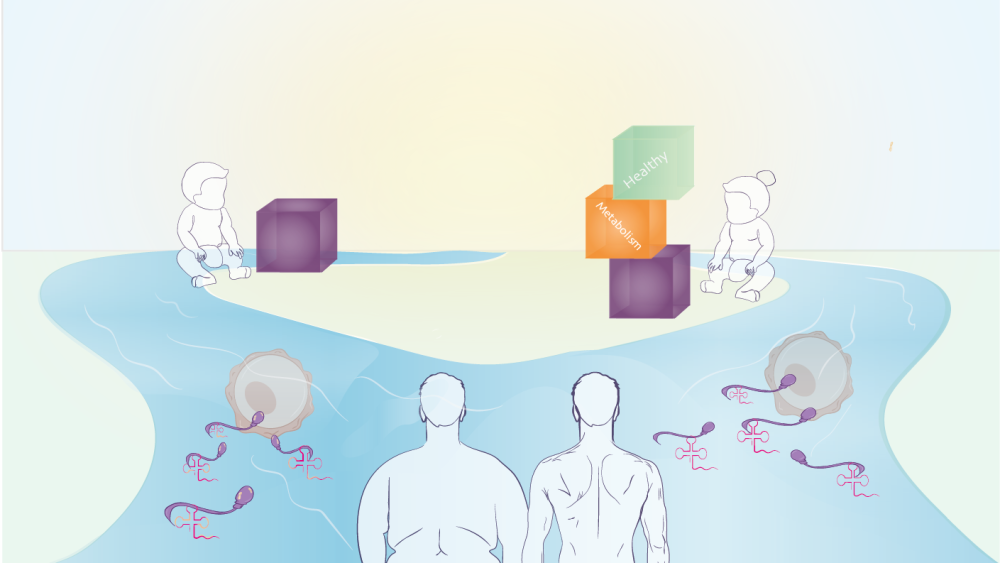Those trying to conceive are often aware of the importance of a healthy lifestyle for the quality of their reproductive cells and, ultimately, the health of their future children. However, a future father’s diet, in particular, can have a significant impact. Recent research has shown that what prospective fathers eat can influence RNA (ribonucleic acid) in their sperm cells, potentially affecting embryo development and increasing the risk of metabolic diseases that their children may develop later in life.
Let’s take a few steps back. DNA (deoxyribonucleic acid) is the hereditary material in nearly all organisms, including humans. While nuclear DNA is inherited from both parents, the DNA found in organelles called mitochondria is exclusively inherited from mothers. Maintaining the integrity of genetic information is crucial, and this is where various types of RNA come into play. RNA has several functions, including carrying genetic information from DNA to proteins and regulating gene expression. Although RNA is not inherited like DNA, it can still transmit information and influence how a new organism develops.
In both mice and humans, spermatogenesis is a two-step process. First, sperm is produced in the testes, and then it travels to an elongated organ called the epididymis, where it matures. Scientists have discovered that feeding mice a high-fat diet makes the sperm cells in the epididymis particularly sensitive to these dietary changes. While they did not observe any effects on sperm development or reproductive fitness, they did find that male offspring of these mice had increased glucose intolerance compared to those of control mice. Interestingly, when the mice were returned to a regular diet for a period long enough to allow the development of new sperm cells, the negative effects were fully reversible.
The sensors of the high-fat diet are a type of RNA called small non-coding RNA (sncRNAs) encoded by mitochondrial genome. These RNAs are delivered from the sperm to the egg during fertilization and may regulate genes involved in mitochondrial energy metabolism. This makes them a potential candidate for predicting how a father’s lifestyle may affect the metabolic health of his children.
So, future dads, it does matter what you eat—for your health and your sons’. Think twice before taking that next bite of deep-fried food. The good news is that for those willing to change their eating habits, the negative effects of poor diet on their offsprings’ health can be reversed.
References:
Tomar, A., Gomez-Velazquez, M., Gerlini, R., Comas-Armangue, G., Makharadze, L., Kolbe, T., Boersma, A., Dahlhoff, M., Burgstaller, J.P., Lassi, M., et al. (2024). Epigenetic inheritance of diet-induced and sperm-borne mitochondrial RNAs. Nature 630, 720-727. 10.1038/s41586-024-07472-3.


Blue Techker
Blue Techker There is definately a lot to find out about this subject. I like all the points you made
Sport Menu Blog
Wow, this was such a helpful read! The information you’ve shared is not only practical but also super timely for anyone working on healthier habits.
I really appreciate how you explained it all so clearly. I’m going
to reference this article on my platform about diets
and nutrition – I know my audience will find it just as valuable.
Thanks for this awesome content!